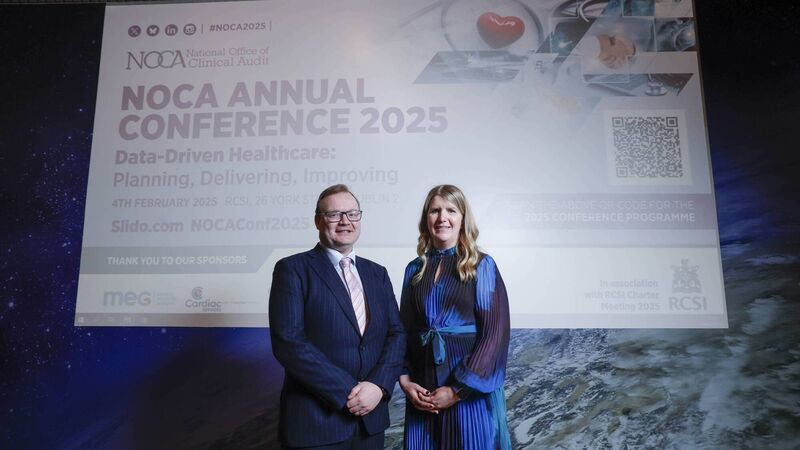Hospitals to pilot digital system to record children's deaths

Professor Michael Barrett (left), Chair of the National Paediatric Mortality Register Governance Committee with Rebecca Maher at the NOCA Annual Conference 2025. Picture: Conor McCabe Photography
University Hospital Limerick and Children’s Health Ireland will pilot a digital system for recording children’s deaths within weeks, a conference in Dublin has heard.
The national office of clinical audit (NOCA) conference also heard from a bereaved mother who lost her baby to a rare heart condition as she welcomed research into why children die.












